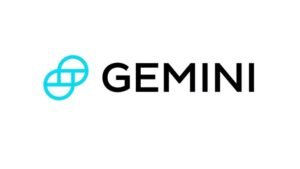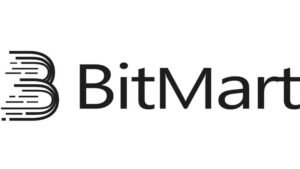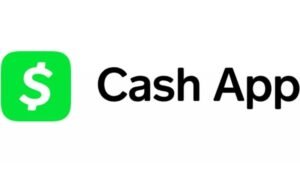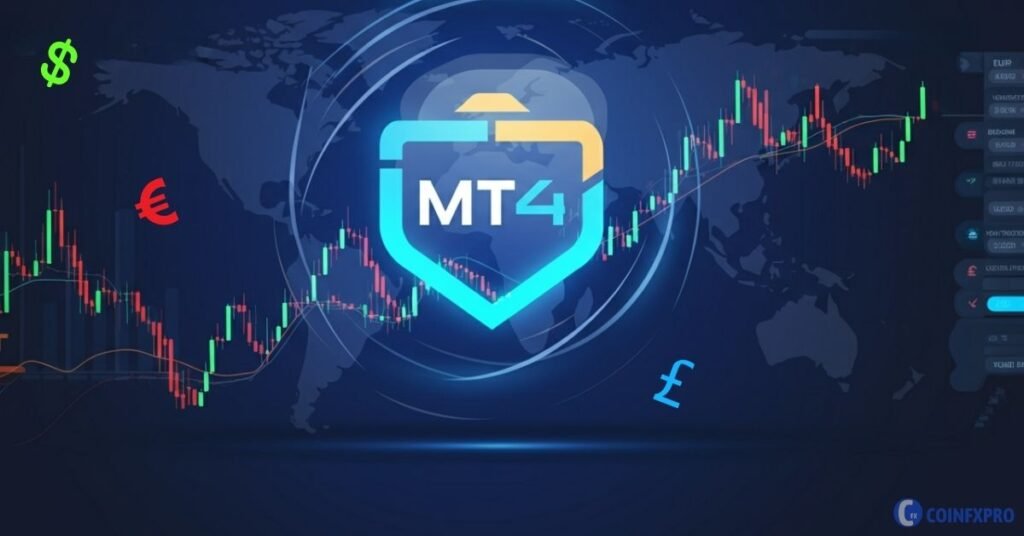Table of contents
- 1 Top Crypto Exchanges and Apps for January 2025
- 1.1 Why Choosing the Right Crypto Exchange Matters
- 1.2 Top Crypto Exchanges and Apps of January 2025
- 1.3 Kraken: Best for Low Fees & Experienced Traders
- 1.4 Coinbase: Best for Beginners
- 1.5 Crypto.com: Best Mobile App
- 1.6 Gemini: Best for Security
- 1.7 BitMart: Best for Altcoins
- 1.8 Cash App: Best for Bitcoin
- 1.9 Bisq: Best Decentralized Exchange
- 1.10 Comparing the Top Cryptocurrency Exchanges
- 1.11 Choosing the Right Crypto Exchange: A Step-by-Step Guide
- 1.12 How to Sign Up for a Crypto Exchange Account
- 1.13 Final Thoughts
Top Crypto Exchanges and Apps for January 2025
As we navigate the ever-evolving landscape of cryptocurrencies, selecting the right exchange is paramount for both seasoned traders and newcomers. With Bitcoin hitting a record high of over $109,000 on January 20, 2025, the demand for reliable and efficient platforms is greater than ever. This guide delves into the top crypto exchanges and apps of January 2025, helping you make informed decisions for your crypto journey.
Why Choosing the Right Crypto Exchange Matters
A cryptocurrency exchange acts as a bridge between you and the digital asset world, much like traditional brokerages. These platforms allow you to buy, sell, and store various cryptocurrencies, including Bitcoin, Shiba Inu, and Dogecoin. Many also offer additional services such as staking, lending, and asset custody. However, it’s essential to acknowledge the inherent risks associated with crypto investments, including volatility, and consult a financial advisor before making any decisions.
Top Crypto Exchanges and Apps of January 2025
After conducting a thorough analysis of 28 crypto exchanges across 20+ key categories, we’ve identified the leading platforms for January 2025. Here are our top picks:
- Best for Low Fees and Experienced Traders: Kraken
- Best for Beginners: Coinbase
- Best Mobile App: Crypto.com
- Best for Security: Gemini
- Best for Altcoins: BitMart
- Best for Bitcoin: Cash App
- Best Decentralized Exchange: Bisq
Kraken: Best for Low Fees & Experienced Traders

Transaction Fees: 0.00% to 0.40%
Currencies: 200+
Minimum Deposit/Purchase: $1
Trade Limits: Yes
Kraken stands out with its professional-grade trading platform, offering low fees and advanced features like margin and futures trading. Established in 2011, Kraken is a reputable exchange supporting 200+ cryptocurrencies.
Pros & Cons of Kraken
- Pros:
- Large number of supported cryptocurrencies
- Low fees
- Highly liquid exchange
- Cons:
- Not available in all U.S. states
- Limited account funding options
Kraken offers both a main and a professional platform (Kraken Pro), with the latter providing customizable chart analysis, detailed order books, and various order types. Fees are tiered, with lower rates for high-volume traders. However, funding options are somewhat limited, with wire transfers being the primary method.
Coinbase: Best for Beginners

Transaction Fees: 0.00% to 0.60%
Currencies: 200+
Minimum Deposit/Purchase: $2
Trade Limits: Yes
Coinbase is renowned for its beginner-friendly interface, extensive cryptocurrency support (5,500+ on Coinbase Wallet), and robust security. Founded in 2012, it operates globally and offers both simple and advanced trading options.
Pros & Cons of Coinbase
- Pros:
- Large number of cryptocurrencies and trading pairs
- Offers both beginner-friendly and advanced trading platforms
- Highly liquid exchange
- Cons:
- Lack of high-quality customer service
- Coinbase’s default wallet is a custodial account
Coinbase provides a seamless user experience, akin to an online banking app, and offers insurance on digital funds and FDIC insurance for U.S. dollar balances. While it offers both custodial and non-custodial wallet options, trading fees can be relatively high, and customer support has been a point of concern for some users.
Crypto.com: Best Mobile App

Transaction Fees: 0.00% to 0.075%
Currencies: 350+
Minimum Deposit/Purchase: $1
Trade Limits: Yes
Crypto.com excels as a mobile-first platform, offering a comprehensive digital asset ecosystem accessible from your smartphone. With over 350 cryptocurrencies and various features, it’s a great option for on-the-go trading.
Pros & Cons of Crypto.com
- Pros:
- Supports more than 350 cryptocurrencies
- Provides a range of cryptocurrency products
- Cons:
- Poor customer support
The Crypto.com app provides a wide array of functions, including buying, selling, trading, and earning interest on crypto. While the platform is feature-rich, customer support has been noted as lacking, and fees can be higher for lower-volume traders.
Gemini: Best for Security

Transaction Fees: 0.0% to 0.40% for active trader, 1.49% for most transactions on regular platform
Currencies: 70+
Minimum Deposit/Purchase: Varies
Trade Limits: Yes
Gemini prioritizes security and compliance, making it a top choice for traders concerned about the safety of their assets. Founded in 2014 by the Winklevoss twins, it has robust security measures, including SOC 2 certification and hot wallet insurance.
Pros & Cons of Gemini
- Pros:
- Available to users in all 50 U.S. states
- Highly liquid exchange
- Insures funds held in hot wallet
- Strong security framework
- Cons:
- High fees on many trades
- Supports fewer cryptocurrencies than many competitor exchanges
Gemini offers a professional-grade trading dashboard and supports over 80 digital currencies. While its security is top-notch, fees can be high on the regular platform, but the active trader platform offers better rates.
BitMart: Best for Altcoins

Transaction Fees: 0.04% to 0.10%
Currencies: 1500+
Minimum Deposit/Purchase: $50 for Bitmart purchases
Trade Limits: Yes
BitMart is the go-to platform for altcoin enthusiasts, supporting over 1,500 cryptocurrencies. Founded in 2017, it offers a vast selection of digital assets, including lesser-known tokens.
Pros & Cons of BitMart
- Pros:
- Supports a very large number of cryptocurrencies
- Provides crypto earning opportunities
- Offers a simple buy/sell cryptocurrency feature
- Cons:
- Experienced a large-scale hack in 2021
- Poor feedback from customers
BitMart provides crypto earning opportunities and perpetual swaps for experienced traders. However, it has faced criticism over customer service and experienced a major security breach in 2021.
Cash App: Best for Bitcoin

Transaction Fees: 0.00% to 3%
Currencies: 1
Minimum Deposit/Purchase: $1
Trade Limits: Yes
Cash App is the ideal choice for Bitcoin-only investors, providing a seamless and secure way to buy, sell, and store Bitcoin directly from your smartphone. Launched in 2013, it also supports Bitcoin Lightning Network for faster transactions.
Pros & Cons of Cash App
- Pros:
- Easy-to-use interface
- Withdraw to wallets
- Supports the Bitcoin Lightning Network
- Cons:
- Only supports Bitcoin
- Custodial wallet
- Various limits on deposits, sales, etc.
While the in-app wallet is custodial, users can withdraw Bitcoin to external wallets. Cash App’s trading fees vary and are displayed at the time of transaction confirmation.
Bisq: Best Decentralized Exchange

Transaction Fees: 0.15% to 1.15%
Currencies: Not Disclosed
Minimum Deposit/Purchase: Not Disclosed
Trade Limits: Yes
Bisq is a decentralized exchange that allows users globally to trade various cryptocurrencies in a peer-to-peer manner, emphasizing privacy and security. Launched in 2014, it does not require KYC verification.
Pros & Cons of Bisq
- Pros:
- Available globally
- Offers a high degree of privacy, no ID verification required
- 50+ different payment options
- Cons:
- Transaction speed can be slow
- Trading volumes can be low
- Not designed for active trading
Bisq offers various payment methods and is ideal for those seeking privacy and decentralization. However, it’s less user-friendly and may not be suitable for beginners.
Comparing the Top Cryptocurrency Exchanges
| Company | Transaction Fees | Currencies | Minimum Deposit/Purchase | Trade Limits |
|---|---|---|---|---|
| Kraken | 0.00% to 0.40% | 200+ | $1 | Yes |
| Coinbase | Variable fees (Coinbase), 0.00% to 0.40% maker fee, and 0.05% to 0.60% taker fee per trade | 200+ | $2 | Yes |
| Crypto.com | 0.00% to 0.075% | 350+ | $1 | Yes |
| Gemini | 0.0% to 0.40% for active traders, 1.49% for most transactions on the regular platform | 70+ | Varies | Yes |
| BitMart | 0.04% to 0.10% | 1,500+ | $50 for Bitmart purchases | Yes |
| Cash App | 0.00% to 3% | 1 | $1 | Yes |
| Bisq | 0.15% to 1.15% | Not Disclosed | Not Disclosed | Yes |
Choosing the Right Crypto Exchange: A Step-by-Step Guide
Selecting the best cryptocurrency exchange is vital for a successful crypto investment experience. Here’s how to make an informed decision:
1. Consider Supported Assets
If you wish to invest in cryptocurrencies other than Bitcoin, make sure your chosen exchange offers the digital assets you are looking for. Some exchanges specialize in a wide array of altcoins, while others may only focus on more established cryptocurrencies like Bitcoin and Ethereum. Check the exchange’s list of available cryptocurrencies to ensure they align with your investment goals.
2. Evaluate Payment Methods
The convenience of funding your account is crucial. Ensure the exchange supports your preferred payment methods, such as credit cards, debit cards, bank transfers, or even third-party payment processors. Also, consider any associated fees for deposits, as these can impact your initial investment. Some exchanges may offer faster deposit options for certain payment methods, which can be beneficial if you want to start trading quickly.
3. Research Fees
Fees can significantly impact your returns, especially if you are an active trader. Look into the trading fees, withdrawal fees, and any other charges associated with the exchange. Some platforms may have tiered fee structures, which reward high-volume traders with lower rates. Additionally, be aware of any hidden fees that may not be clearly stated. Always compare the fee structures of different exchanges to find the most cost-effective option for your trading style.
4. Prioritize Security
With the increasing threat of cyber attacks, choosing an exchange with robust security measures is crucial. Look for features such as two-factor authentication (2FA), cold storage of digital assets, and insurance coverage for hot wallets. Exchanges that have a history of security breaches may not be the safest option. Consider platforms with regulatory compliance and a strong track record for protecting user funds.
5. Evaluate Customer Support
Responsive and reliable customer support is essential, especially for new users who may need guidance. Check if the exchange provides multiple support channels, such as email, live chat, or phone support. Also, research user reviews to see how quickly and effectively the platform resolves issues. A well-regarded customer service can save a lot of headaches, especially in a dynamic and sometimes volatile cryptocurrency market.
6. Check the Exchange’s Reputation
Before committing to an exchange, conduct thorough research into its reputation. Check for customer reviews on various platforms, forums, and social media. Look for any recent news regarding security breaches, regulatory issues, or customer complaints. A well-established exchange with positive feedback is generally a safer option than a newer, untested one.
How to Sign Up for a Crypto Exchange Account
The steps for opening an account on a cryptocurrency exchange are similar to the process of opening an account at an online brokerage. However, due to the sensitive nature of cryptocurrency transactions, extra security measures are often implemented to safeguard user assets.
- Create an Account:Visit the official website of the crypto exchange you have selected. Look for the “Sign Up” or “Register” button, which is usually located in the top-right corner of the homepage. You will typically need to provide a valid email address and create a strong, unique password. Ensure your password is not easily guessed and use a combination of upper and lower case letters, numbers, and symbols. Some exchanges may also ask for a phone number at this stage for added security.
- Upload Personal Information:After initial sign-up, you’ll be required to verify your identity. This involves submitting personal information such as your full name, date of birth, residential address, and a copy of your government-issued photo identification. Common forms of ID include a passport, driver’s license, or national ID card. The information is needed to comply with Know Your Customer (KYC) and Anti-Money Laundering (AML) regulations.
- Complete Identity Verification:Many exchanges use automated verification processes to expedite identity checks. This might involve taking a live photo or video of yourself holding your ID or using a webcam to match your face with the photo on your ID. This step is crucial to verify that you are the actual owner of the ID being uploaded. Some exchanges may also require proof of address, like a recent utility bill or bank statement.
- Fund Your Account:Once your identity is verified, you can proceed to fund your account. Depending on the exchange and your preferences, you can deposit funds using various methods, including bank transfers, debit/credit cards, or other cryptocurrencies. The time for funds to reflect in your account may vary. With bank transfers, it could take a couple of days, whereas crypto deposits are usually faster. Check the exchange’s fee policy and any applicable limits before depositing.
Final Thoughts
Choosing the best cryptocurrency exchange requires careful consideration of your individual needs and investment preferences. Whether you prioritize low fees, security, a vast selection of altcoins, or a beginner-friendly user interface, there is a crypto exchange that meets your needs. Be sure to do thorough research and remain up-to-date on the crypto space as it continuously evolves.














Pingback: Metaverse Coin List for Beginners: Coins with Potential in 2025
Pingback: CoinStats Review: The Ultimate Tool for Crypto Portfolio Tracking
Pingback: Fair Launch: A Deep Dive into Equitable Crypto Distribution - CoinFxPro
Pingback: Crypto's Sneaky Trap: Understanding the Bait and Switch Scam - CoinFxPro
Pingback: A Comprehensive Guide to Cryptocurrency Trading CoinFxPro
Pingback: What is a Crypto Wallet? A Complete Guide - CoinFxPro
Pingback: What is Kraken Crypto: A Comprehensive Guide CoinFxPro Crypto Tools
Pingback: The Definitive Guide: How to Buy Cryptocurrency in 2025 - CoinFxPro
Pingback: Koinly Reviews: The Complete Crypto Tax and Portfolio Guide CoinFxPro
Pingback: What is Blockchain Technology? A Comprehensive Guide - CoinFxPro
Pingback: AI Wallets Explained: Features, Benefits, and Investment Strategies
Pingback: NFT Staking: Blending Digital Collectibles with Staking Rewards - CoinFxPro
Pingback: What is Bitcoin? A Deep Dive into the World's First Cryptocurrency - CoinFxPro
Pingback: Understanding Cryptocurrency Regulations and Their Importance
Pingback: ChartPrime Review: Is It the Ultimate Trading Tool? CoinFxPro
Pingback: What is Cryptocurrency? A Comprehensive Guide to Digital Assets
Pingback: What is a Crypto Stock and How Does it Work? CoinFxPro
Pingback: What Does Decentralized Mean in Crypto? A Beginner's Guide? CoinFxPro